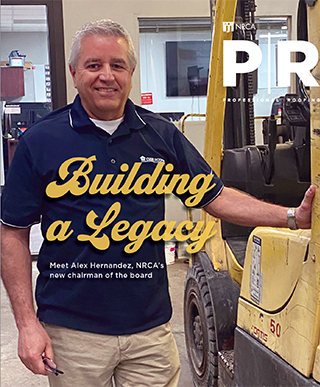Back in ancient times—the 1970s—NRCA sponsored a study of rooftop safety, and one of its key conclusions, to the surprise of virtually no one, was there were safe crews and unsafe crews, and a crew's safety mostly was determined by its foreman.
In more modern times—the 1990s—The Roofing Industry Alliance for Progress undertook a study of the roofing industry's workforce to gather basic demographic data and better understand why people enter, stay in and exit our industry. One finding, again to no one's surprise, was roofing foremen are key to determining the likelihood of a worker staying with a company, being trained and ultimately becoming a productive long-term employee.
The point is we have documented proof for 40 years of what every roofing contractor knows intuitively: Roofing foremen are crucial to the success of a professional roofing company.
The same Alliance-sponsored study concluded people who enter the roofing industry do so expecting to be properly trained and provided with a well-defined career path. It also concluded that because roofing foremen are such an important part of a company's training program, they need to develop better leadership and communication skills.
Taking all this into account, NRCA embarked on a career path-based approach to training several years ago, beginning with foremen. The idea is straightforward: identify the skills necessary for each employment level at a roofing contracting company, develop training programs to address those skills and recognize the people who have completed the training.
For obvious reasons, we chose to begin with foremen, and in 2013, NRCA announced the creation of its ProForeman program. Foremen who demonstrate they have been trained in skills necessary to be excellent leaders (safety management, leadership and communication) will earn the designation of ProForeman.
Most of the required training is readily available, and the designation can be earned without a great deal of travel or time away from the job. ProForeman participants are required to participate in NRCA leadership and fall-protection training, but much of the rest of the required training can be completed online or at the foreman's place of business.
With new demands being placed on foremen every day and increasing reports of labor shortages in the industry, we believe there's no better investment professional contractors can make than in their most valuable employees.
We invite you to learn more about this important new program at www.nrca.net/proforeman, or contact Amy Staska, NRCA's associate executive director of education, at astaska@nrca.net.
Bill Good is NRCA's executive vice president.



